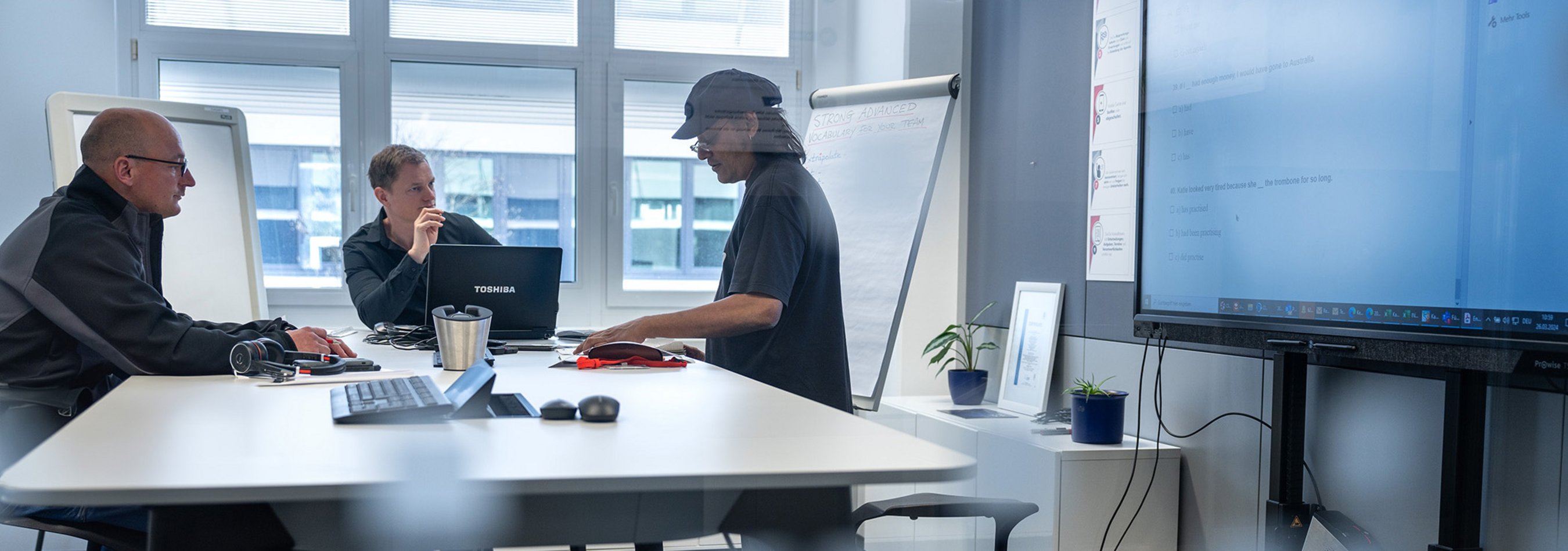In the globalised workplace, English language skills are no longer an option, but a necessity. Companies are constantly looking for effective ways to train their employees in this language. A notable example of such an initiative is the "Meetings in English" programme introduced in the Manufacturing Software and Preanalytics divisions at STIWA.
The core idea of the programme is simple but effective: to learn English by using it in the workplace. Instead of traditional language courses, the programme relies on regular meetings in English where employees actively use the language and build their vocabulary in the context of their daily work. This method helps to immediately apply what has been learnt and promotes understanding of the language in a natural environment.
A key aspect of the programme is to support employees who are increasingly working in an international environment, whether dealing with international customers or colleagues from other countries. In the manufacturing software division, for example, documentation has been switched to English, which means that employees first practise the language in writing and with the help of tools such as DeepL before actively participating in English-language meetings.
Encouraging independence
The idea and implementation of the programme was largely driven by Sascha Schwarz-Greiner in collaboration with HR. The practical implementation is in the hands of Mr Jeremy "Jem" Goes, an external trainer from the bfi who, as a native speaker from Great Britain, imparts authentic language skills.
Meet in English has a well-designed structure: The teams hold their usual meetings in English in regular sessions, which currently take place twice a week on Tuesdays for two hours each. "The trainer accompanies the meetings, but only intervenes when support is needed with the use of language or understanding," explains Schwarz-Greiner. This approach encourages participants' independence and allows them to learn in a real-life context while improving their language skills.
Feedback is positive
Feedback from participants has been overwhelmingly positive. Employees appreciate the opportunity to practise English in a relevant and practical environment and recognise the immediate benefits to their daily work. The combination of authentic application and professional guidance has proven to be an effective method of improving English in the workplace.



